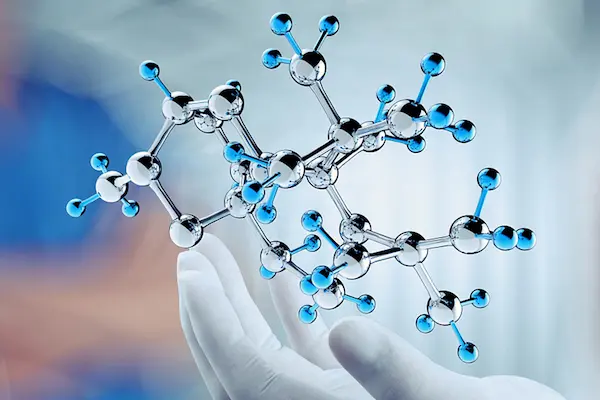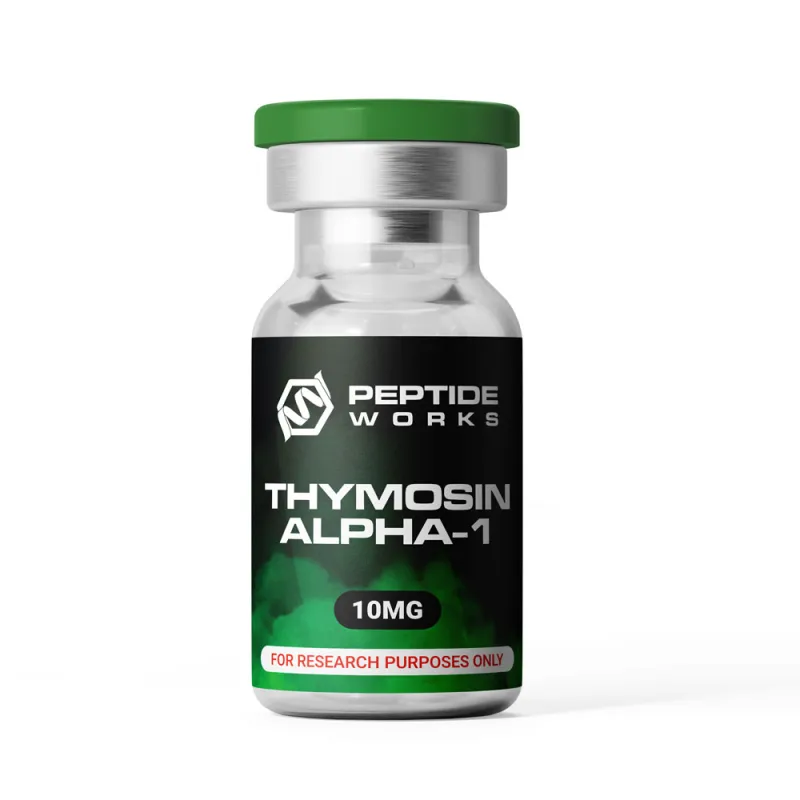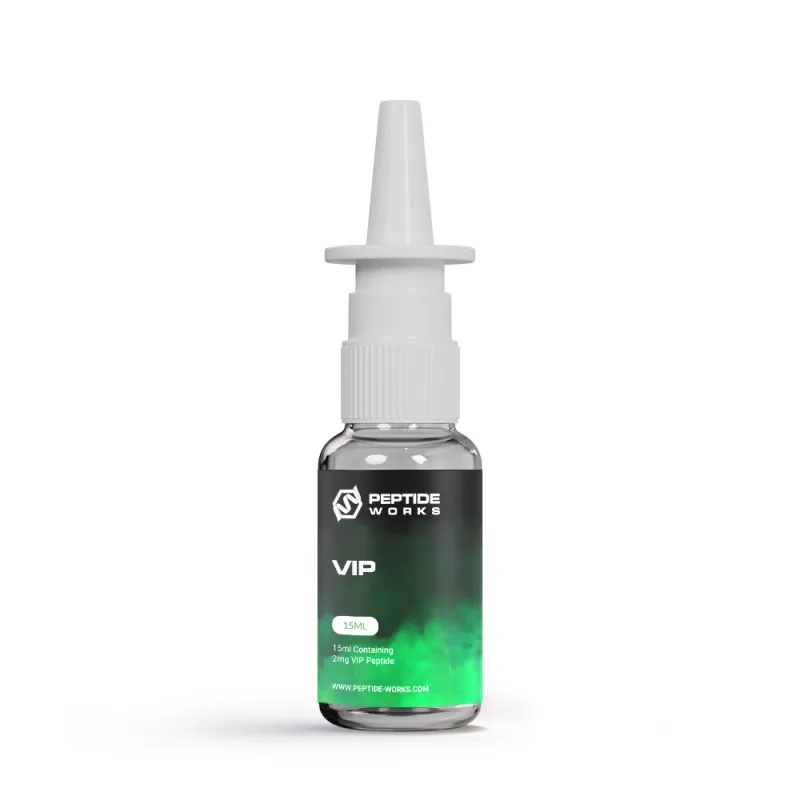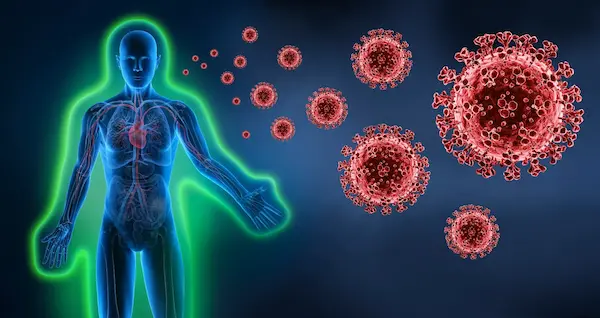
PROMO!
First order? Get 10% OFF with this code: 1storder
Written by

From fighting infections to keeping the body in balance, the immune system never stops working, and scientists never stop uncovering how it functions. One area drawing growing interest is immunity peptides, short chains of amino acids that may hold powerful clues about how the immune system reacts, adapts, and protects against constant threats while supporting overall immune function.
At Peptide Works, we make it easier for laboratories and research teams worldwide to explore these immunomodulatory peptides. By offering a trusted source of research-grade compounds, we help scientists study how immunity peptides could play vital role in strengthening natural defenses, improving balance in immune pathways, and opening doors to new findings in health science.
To see why these compounds are gaining interest, it’s useful to begin with how they function inside the immune system.
Explore Thymosin Alpha-1 from Peptide Works, an immunity peptide studied for supporting T cell activation and balanced adaptive immune responses.

Immunity peptides connect with immune cells and guide their responses to challenges. In research, they bind to the cell surfaces of T cells, macrophages and dendritic cells, triggering signal transduction, cytokine signaling and cytokine production that shape immune defense activity. Depending on the context, these peptides modulate the immune response or help regulate responses. Some also act as natural host defense peptides that support innate immunity.
Researchers describe them as flexible tools for exploring balance in the immune system. In different lab studies, they may show antimicrobial effects, reduce unwanted inflammation, or encourage faster recovery signals.
Because of these wide-ranging roles, researchers have highlighted certain immunity peptides that stand out for their unique contributions.
In recent years, researchers have focused on a select group of peptides with strong potential for immune studies. These compounds stand out because each interacts with the immune system in a unique way:
Together, these immunity peptides give scientists valuable tools to explore how the immune system adapts and defends. The best way to see their value is by looking more closely at what each one contributes.
Discover LL-37 from Peptide Works, a natural host defense peptide known for its antimicrobial action and role in guiding balanced immune and inflammatory responses.

Thymosin Alpha-1 is one of the most studied immunity peptides for its role in immune modulation. Research indicates it can enhance T cell activity, which may support immune defense in certain conditions. It also influences dendritic cells and helps regulate cytokine signals and antigen presentation keeping responses strong but balanced.
Scientists value Thymosin Alpha-1 because it adapts to different conditions. It may strengthen defenses when the immune system is weak or calm harmful inflammation when activity is too high. This dual effect makes it a key focus for understanding how to restore immune balance in both innate and adaptive immunity, including research related to autoimmune diseases.
Building on that adaptive role, another compound LL-37 is studied more for its antimicrobial power and influence on early immune defenses.
LL-37 is a natural host defense peptide that plays an important role in innate immunity. It shows direct antimicrobial action, breaking down bacterial cell membranes and showing activity against viruses and fungi. This makes LL-37 part of the body’s first protective barrier.
Beyond killing microbes, LL-37 also works as an immune modulator. It attracts immune cells like neutrophils, T cells, and monocytes to infection sites. At the same time, it regulates inflammation by guiding cytokine production. This balance between defense and control is why researchers highlight LL-37 as both a shield and a regulator of immune health. Because of this, LL-37 is of research interest in several health conditions linked to inflammation and microbial imbalance.
While LL-37 emphasizes antimicrobial activity, VIP stands out among immunity peptides for its ability to regulate inflammation and keep immune activity from going too far.

VIP, or vasoactive intestinal peptide, is one of the immunity peptides studied for its potential to reduce harmful inflammation while maintaining immune defenses. In research, it binds to receptors on immune cells, where it lowers the release of pro-inflammatory cytokines and encourages protective signals. Through this process, VIP may help prevent tissue damage during immune reactions and reduce chronic inflammation linked to chronic stress and other factors.
Research also suggests VIP may promote regulatory T cells and support long-term immune balance, though most findings come from animal and experimental studies. By calming overactive responses without shutting down protection, VIP offers insight into how immunity can be fine-tuned. This balance between control and defense makes VIP a valuable model for studying immune regulation in both innate and adaptive systems.
Beyond peptides like VIP, researchers also pay attention to essential nutrients such as Vitamin B12, which supports immune activity in different ways.
Explore VIP Peptide from Peptide Works, a neuropeptide that supports immune balance by calming excessive inflammation while maintaining protective defenses.
Vitamin B12 is best known for its role in energy metabolism, but studies also suggest a connection to immune regulation. Research suggests that B12 supports the growth and activity of white blood cells, which play a crucial role in fighting infections. Low levels of B12 are often associated with reduced immune efficiency.
Scientists also investigate B12’s role in regulating inflammation and maintaining immune balance. It may help regulate cytokine levels, keeping responses steady instead of extreme. For this reason, B12 is of interest in immunity studies, where the balance between defense and overreaction is essential for long-term health.
Once these individual roles are clear, the natural question is how they compare to one another in supporting the immune system.
Shop Vitamin B12 from Peptide Works, an essential nutrient often studied for its contribution to healthy immune cell function and balanced inflammatory signaling.

Each immunity peptide supports the immune system in a different way. Researchers compare them based on how they act on cells, signals, and balance:
| Compound | Main Immune Role | Research Focus |
|---|---|---|
| Thymosin Alpha-1 | Boosts T cell activity and restores balance | Adaptive immunity, immune strength restoration |
| LL-37 | Provides antimicrobial defense and shapes inflammation | Innate immunity, microbial protection, cytokine control, wound healing |
| VIP | Reduces overactive inflammation, promotes regulatory T cells | Immune homeostasis, long-term balance |
| Vitamin B12 | Supports white blood cell growth and stable responses | Immune regulation, deficiency-related research |
No single peptide is “best.” Instead, each one offers unique insight into immunity, from microbial defense to long-term regulation.
As research develops, these comparisons set the stage for what lies ahead in the field.
The study of immunity peptides is still unfolding, and the outlook is bright. These compounds continue to reveal new ways the immune system can be strengthened, guided, and balanced. As research expands, they may shape the future of how we understand infections, inflammation, and immune resilience.
At Peptide Works, we are dedicated to advancing high-quality research by providing high-quality peptides to laboratories and independent researchers worldwide. Our mission is to make exploration both accessible and reliable. With every study, immunity peptides bring science closer to deeper insights into how the body protects itself and open the path toward tomorrow’s breakthroughs in immune research.
All products discussed are supplied for research purposes only and are not intended for human use.
[1] Dominari A, Hathaway Iii D, Pandav K, Matos W, et al. Thymosin alpha 1: A comprehensive review of the literature. World J Virol. 2020 Dec 15;9(5):67-78.
[2] Tao N, Xu X, Ying Y, Hu S, etal. Thymosin α1 and Its Role in Viral Infectious Diseases: The Mechanism and Clinical Application. Molecules. 2023 Apr 17;28(8):3539.
[3] Svensson D, Nilsson BO. Human antimicrobial/host defense peptide LL-37 may prevent the spread of a local infection through multiple mechanisms: an update. Inflamm Res. 2025 Feb 11;74(1):36.
[4] Smalley SG, Barrow PA, Foster N. Immunomodulation of innate immune responses by vasoactive intestinal peptide (VIP): its therapeutic potential in inflammatory disease. Clin Exp Immunol. 2009 Aug;157(2):225-34.
[5] Tamura J, Kubota K, Murakami H, Sawamura M, et al. Immunomodulation by vitamin B12: augmentation of CD8+ T lymphocytes and natural killer (NK) cell activity in vitamin B12-deficient patients by methyl-B12 treatment. Clin Exp Immunol. 1999 Apr;116(1):28-32.
ALL CONTENT AND PRODUCT INFORMATION AVAILABLE ON THIS WEBSITE IS FOR EDUCATIONAL PURPOSES ONLY.
DISCLAIMER: These products are intended solely as a research chemical only. This classification allows for their use only for research development and laboratory studies. The information available on our Peptide Works website: https://peptide-works.com/ is provided for educational purposes only. These products are not for human or animal use or consumption in any manner. Handling of these products should be limited to suitably qualified professionals. They are not to be classified as a drug, food, cosmetic, or medicinal product and must not be mislabelled or used as such.
Peptide Works
Related Articles

What are the Best Cognitive Peptides?
Cognitive peptides are short chains of amino acids that researchers are exploring for their potential effects on brain function. They

Achieving increased skin pigmentation without prolonged sun exposure has been demonstrated with Melanotan peptides in research. Two commonly studied options,

Can PTD-DBM Hair Growth Peptide Stop Balding?
Hair thinning and balding affect millions worldwide, often leading to frustration and limited options. This challenge has driven researchers to